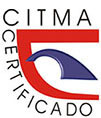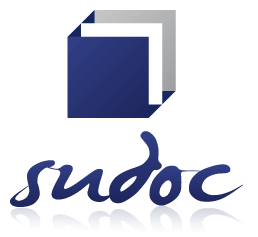The social function of the Committees for the Defense of the Revolution in Cuba. Theoretical analysis
Keywords:
Social function, community organization, Committees for the Defense of the RevolutionAbstract
ABSTRACT: Introducción: The social function of the Committees for the Defense of the Revolution (CDR), distinguishes the essence of the organization, in correspondence with the demands of the VIII Congress of the Communist Party of Cuba (PCC) to consolidate a prosperous and sustainable socialism from the community. The research, which is the result of a doctoral thesis, aims to examine the historical scope and his main contributions in Cuba, from the revolutionary thought of Fidel Castro. Methods: The dialectical-materialist, analysis-synthesis, historical and logical methods were use, the main results being found in the study of the historical foundations of the cederist social function and its materialization in the community practice. Results: The results show, based on the work tendencies, the role it plays and the way it relates to other factors of its social space, as well as the relationship with society as a whole. From the theoretical analysis, the CDRs are enriched from the recognition and identification of the essential periods, where the main institutional, normative, ideological changes, political relations of the country and their influence on the way of participation of the people as a massive subject of power take place. Conclusions: In the analysis of the tendencies of the CDR work systems the social function expresses the interdependence relations of the elements that compose the society. In the study of the historical stages, it is considered that the CDR strengthen their participation from experiences of work in the community, which is developed with a perspective of improvement, from articulating and harmonizing the presence of the people in the projection and execution of community strategies to satisfy the material and spiritual needs of Cuban society.
Downloads
References
BUTTERFOSS, F. D. (2006). Process Evaluation for Community Participation. Annual Review of Public Health, 27 (1), 323-340. DOI: 10.1146/annurev.publhealth.27.021405.102207.
CARBALLIDO, V, ÁVILA, R. (2009). Nacimiento entre petardos. La Habana, Cuba: Editora Historia.
CASTRO, F. (1972). Discurso pronunciado en conmemoración al X Aniversario de los CDR. En: Discursos de Fidel en los aniversarios de los CDR, 1968-1972. La Habana, Cuba: Editado por COR del CC del PCC.
CASTRO, F. (1968). Discurso de Fidel en los aniversarios de los CDR 19860-1967. La Habana: Instituto del Libro.
CASTRO, F. (1974). Discurso desarrollado en la III Asamblea de Balance de los CDR Ciudad de La Habana.
CASTRO, J. L. Y HERNÁNDEZ, L. (2019). La función social de los Comités de Defensa de la Revolución. Apuntes para un debate. Centro de información. Escuela Provincial del PCC. Holguín, Cuba.
DÍAZ-CANEL, M. (28 de septiembre, 2019). Pensando como país. Sin miedo a la coyuntura. Granma. Edición Única. Órgano oficial del CC del PCC. N.o 233. La Habana. Cuba.
DUHARTE, E. (1998). El sistema político cubano hoy. Ponencia presentada en el Primer Encuentro científico internacional de académicos británicos y cubanos Continuidades del proceso revolucionario cubano desde 1959. Universidad de Wolverhampton, Cátedra de Estudios sobre Cuba. Reino Unido, marzo de 1998.
HERNÁNDEZ, L. (2009). Concepción sociocultural de la gestión participativa de los grupos de trabajo comunitario integrado. Tesis en opción al grado científico de Doctor en Ciencias Sociológicas. Universidad de Oriente, Santiago de Cuba.
LENIN, V. I. (1959). ¿Qué hacer? Obras Completas (Vol. 5). Buenos Aires: Editorial Cartago, 351-535.
LEYVA, A Y OTROS (2011). Trabajo: Social Comunitario. Una experiencia realizada desde la óptica cubana. Facultad de Ciencias Sociales y Humanísticas de la Universidad de Granma. Centro de Desarrollo Territorial Holguín – UCI. V 1. 5.
Partido Comunista de Cuba. (2017). Compendio. Documentos del 7.mo. Congreso del Partido aprobados por el III Pleno del Comité Central del PCC el 18 de mayo de 2017 y respaldados por la Asamblea Nacional del Poder Popular el 1 de junio de 2017. La Habana, Cuba: Editora Política.
RAUBER, I. (1995). Actores sociales, luchas reivindicativas y política popular. En: Pasos. San José de Costa Rica, 62.
RODRÍGUEZ, E. R. Y NAVARRO, E. M. (2014). Alma de la nación cubana. La Habana, Cuba: Casa Editorial Verde Olivo.
Downloads
Published
How to Cite
Issue
Section
License

This work is licensed under a Creative Commons Attribution-NonCommercial 4.0 International License.
Usted es libre de:
Compartir — copiar y redistribuir el material en cualquier medio o formato
Adaptar — remezclar, transformar y construir a partir del material
La licenciante no puede revocar estas libertades en tanto usted siga los términos de la licencia
Bajo los siguientes términos:
Usted es libre de:
Atribución — Usted debe dar crédito de manera adecuada, brindar un enlace a la licencia, e indicar si se han realizado cambios. Puede hacerlo en cualquier forma razonable, pero no de forma tal que sugiera que usted o su uso tienen el apoyo de la licenciante.
NoComercial — Usted no puede hacer uso del material con propósitos comerciales.
No hay restricciones adicionales — No puede aplicar términos legales ni medidas tecnológicas que restrinjan legalmente a otras a hacer cualquier uso permitido por la licencia.


















